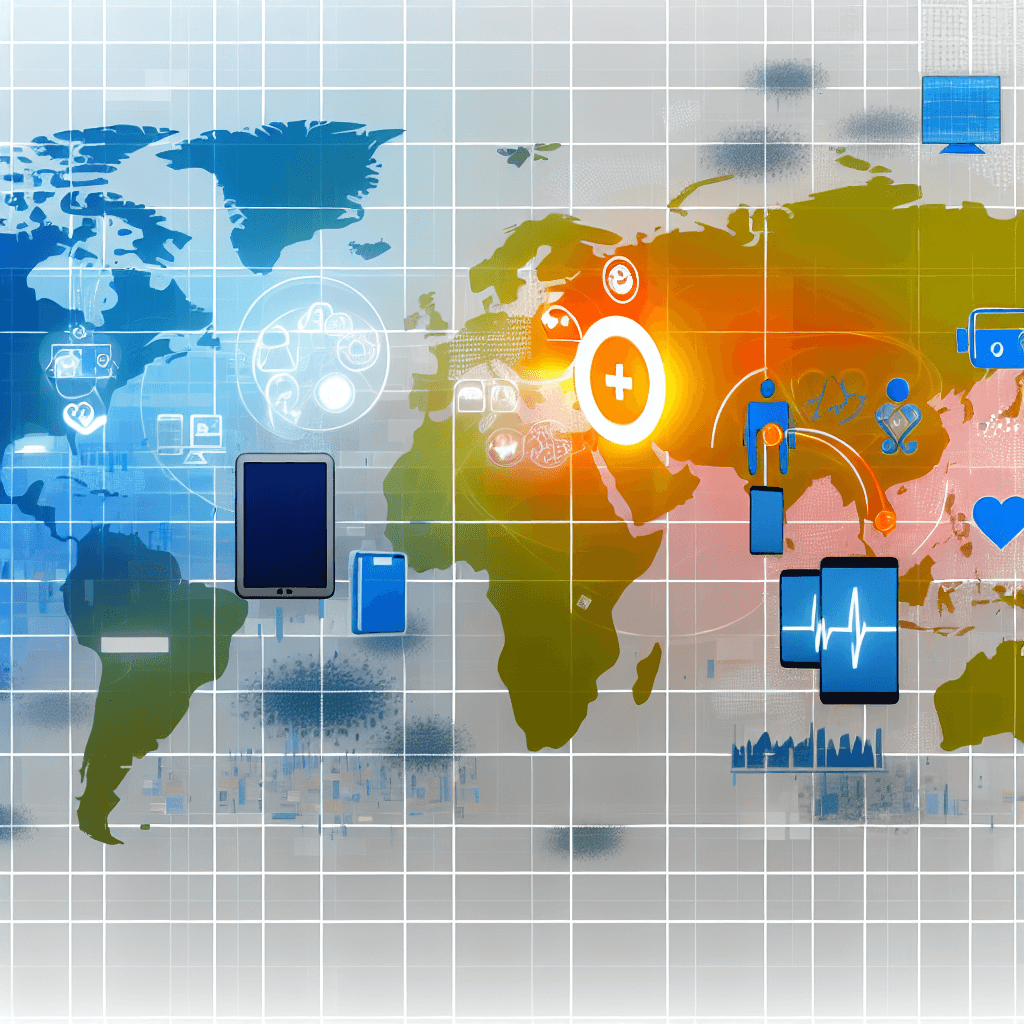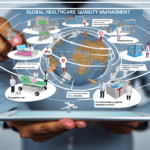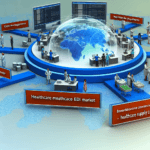Explore the global mHealth solutions market size by product, service, and region, with forecasts and trends analysis.
Global mHealth Solutions Market Size By Product And Service, By Geographic Scope And Forecast

Table of Contents
Global mHealth Solutions Market Size By Product And Service, By Geographic Scope And Forecast

The global market for mobile health (mHealth) solutions is witnessing a significant surge, driven by technological advancements, increasing penetration of smartphones, and a growing focus on personalized healthcare. This article explores the mHealth solutions market, analyzing its size by product and service, and examining its growth across different geographic regions. We will delve into the factors propelling the market, highlight key players, and discuss future trends that are likely to shape the industry.
Understanding mHealth Solutions
mHealth, or mobile health, refers to the practice of medicine and public health supported by mobile devices such as smartphones, tablets, personal digital assistants, and the wireless infrastructure. mHealth solutions encompass a wide range of services and products, including mobile apps, wearable devices, telehealth systems, and more. These technologies are designed to facilitate patient monitoring, health education, medical data collection, and healthcare delivery.
Market Overview
The global mHealth solutions market is expanding rapidly. According to a report by Grand View Research, the market was valued at approximately USD 40.05 billion in 2020 and is expected to grow at a compound annual growth rate (CAGR) of 17.7% from 2021 to 2028. This growth is attributed to several factors including the increasing adoption of smartphones and health apps, the rising prevalence of chronic diseases, and the need for cost-effective healthcare delivery.
Segmentation by Product and Service
The mHealth solutions market can be segmented into various products and services, each addressing different aspects of healthcare. Here are the major categories:
- Wearable Devices: Includes devices like fitness trackers, smartwatches, and health monitoring devices such as blood pressure monitors and glucose meters.
- Mobile Apps: Encompasses a wide range of applications for fitness, wellness, medication management, and chronic disease management.
- Telehealth Services: This segment includes remote patient monitoring services and mobile telemedicine services, which are increasingly being adopted in rural areas and developing countries.
Each of these segments has shown significant growth, with wearable devices and mobile apps seeing particularly high adoption rates due to their ease of use and the direct benefits they offer to consumers.
Geographic Insights
The mHealth solutions market varies significantly across different regions, influenced by factors such as healthcare infrastructure, regulatory policies, and technology adoption rates. Here’s a breakdown of key geographic areas:
- North America: Leads the global market due to high smartphone penetration, advanced healthcare infrastructure, and the presence of major market players.
- Europe: Strong growth driven by increasing health awareness, government initiatives to promote digital health, and rising healthcare expenditure.
- Asia Pacific: Fastest-growing region, propelled by increasing smartphone usage, improving healthcare infrastructure, and government initiatives in countries like India and China.
- Latin America and Middle East & Africa: Gradual growth due to increasing investment in healthcare and rising awareness about the benefits of mHealth solutions.
Driving Factors and Challenges
The expansion of the mHealth solutions market is driven by several key factors:
- Technological Advancements: Innovations in mobile technology and connectivity have made it easier to deploy mHealth solutions on a large scale.
- Increasing Healthcare Costs: mHealth solutions are seen as a cost-effective alternative for both providers and patients, helping to reduce the overall burden of healthcare expenses.
- Government Initiatives: Many governments are actively promoting digital health technologies to improve healthcare accessibility and efficiency.
However, the market faces challenges such as data security concerns, regulatory issues, and resistance from traditional healthcare providers. Overcoming these hurdles is essential for the wider adoption of mHealth solutions.
Key Market Players and Innovations
Several leading companies are dominating the mHealth solutions market, each contributing with unique innovations:
- Apple Inc.: Known for its Apple Watch and health-related features including heart rate monitoring and ECG.
- Fitbit, Inc.: Specializes in wearable technology that tracks physical activity, sleep patterns, and other personal metrics.
- Philips Healthcare: Offers a range of mHealth solutions, including mobile medical alert systems and connected health devices.
These companies not only contribute to technological advancements but also help in setting industry standards and pushing for regulatory changes that benefit the entire ecosystem.
Future Trends
Looking ahead, several trends are likely to influence the mHealth solutions market:
- Integration of Artificial Intelligence (AI): AI is set to play a crucial role in enhancing the functionality of mHealth apps and devices, making them more predictive and personalized.
- Focus on Mental Health: There is a growing focus on mental health apps, driven by an increased awareness of mental health issues and the stigma reduction in seeking help.
- Expansion in Developing Countries: As smartphone penetration increases in developing countries, there is significant potential for the expansion of mHealth solutions in these regions.
Conclusion
The global mHealth solutions market is poised for significant growth, driven by technological advancements, a shift towards personalized healthcare, and increasing health awareness. While challenges remain, the potential benefits of mHealth solutions in improving healthcare accessibility and efficiency are immense. As the market continues to evolve, it will offer exciting opportunities for innovation and transformation in the healthcare industry.
In conclusion, the mHealth solutions market represents a dynamic and rapidly evolving field with the potential to revolutionize how healthcare is delivered across the globe. Stakeholders in the healthcare sector, technology providers, and policymakers must collaborate to maximize the benefits of mHealth solutions while addressing the associated challenges.








